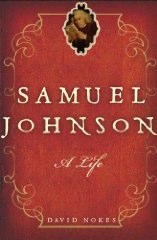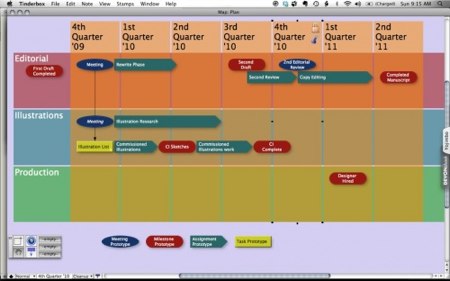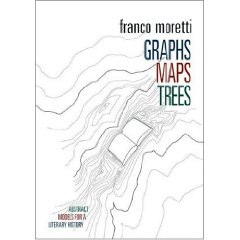We've been pondering hypertext criticism this week at Eastgate. I’ve been revisiting essays that were old friends, and finding many are even better today that they were when new.
Why is so much of what’s written about electronic literature so obscure? Often, passages seem to invite close and careful reading, but turn out to be difficult or impossible to decode. Here’s Mark Amerika, writing in the Electronic Book Review, describing what seems to be a special issue or collection:
Mark Amerika: The Sounds of the Artificial Intelligentsia
As I thread my way through ebr, I touch base with the artificial intelligentsia that my work circulates in. The artificial intelligentsia is an internetworked intelligence that consists of all the linked data being distributed in cyberspace at any given time, one that is powered by artistic- intellectual agents remixing the flow of contemporary thought.
I'm picking out Amerika here because he’s a well known and capable writer; he’s not struggling with the language and he’s not a forlorn student. He knows new media, he’s widely read and his art widely exhibited. This passage introduces and explains a project, and it stands alone. It’s prominently displayed in a noteworthy journal.
But what does this mean?
What is “the artificial intelligentsia”? The conventional intelligentsia are people distinguished by their education and intellectual interests. Are the artificial intelligentsia all the robots that went to university? Or does this mean the body of researchers who study artificial intelligence? James Fallows used the term in 2006, but his article doesn’t seem to illuminate this one.
In what sense, precisely, do we touch base with this intelligentsia? The metaphor is drawn from baseball, where a baserunner must at various points touch base in order to avoid being called out, and describes quasi-social contacts that are, in fact, necessary business calls: "Yes, I’d love to meet you at the Polo Lounge, but first I need to touch base with my agent.” If this writing is precise, there should be a penalty for failing to touch base. But what penalty is envisioned?
Amerika’s work circulates in the intelligentsia. “Circulates” suggests blood flow; which of Amerika’s artworks are fluid? The usual preposition for exchanging ideas or books within a group of people would be among: why “in”? The dangling (though defensible) preposition clamors for attention, but what does it say?
Some of these questions might be addressed in the next sentence. But what is an “internetworked intelligence”? Can “the linked data” be an intelligence? Intelligence suggests self-awareness and agency, and I’m not certain “the linked data” – even all the linked data – have either. And this intelligence is powered – it needs batteries? – by artistic- intellectual agents. What or who are they? Are these intellectual agents part of the natural intelligentsia, or part of the artificial one? If the latter, is the artificial intelligentsia self-powering?
I’m a sloppy writer. I’m especially careless in this weblog. But I doubt that the difficulty of understanding this passage arises from carelessness or inattention.
I don’t understand what this passage says. I used to do AI research. I’ve studied hypertext and networks for decades. I’ve read a lot of the pertinent literature. If I’m not the ideal reader for EBR, I ought to be in the ballpark. And, if I’m not: how might I clamber in? I’m pretty good at picking up new fields. I was trained as a chemist, I never took a computer science course. I manage to read books about charcuterie and archaeology and 18th century history, fields of which I know nothing. I can’t read this, and I can’t figure out how to learn. Google doesn’t help. A shelf full of books about hypertext doesn’t help. Another shelf of books on AI research doesn’t help.
Can you help? Email me.
This passage lies at the top of a page featured on the home page. EBR’s editors are English professors. Whatever this is, I’m pretty sure it’s not an accident. If it’s this hard for me, what does this say to graduate students? To people searching for something worth reading? For writers seeking to improve their technique?
And if the electronic book review is mute to graduate students and readers and writers, to whom is it addressed?
Update: A correspondent writes to say that (a) I sound like an angry old man, and (b) the meaning is clear: “I like to read EBR, and I am pleased EBR readers like my work.” It’s a blurb.
Slapping head.




